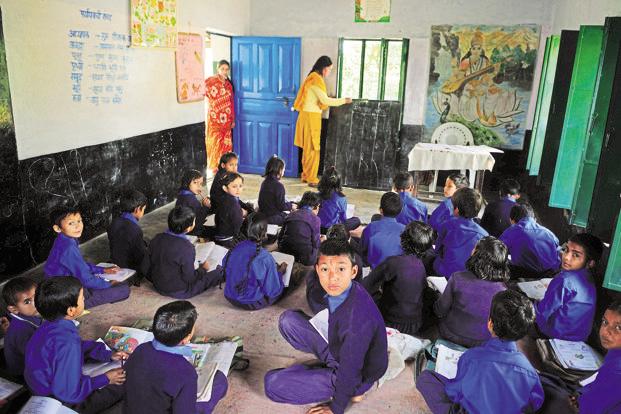There is hardly a country in the world that is not attempting to improve its school education. Countries like Canada and Finland, which already have excellent school systems, are still trying to improve. These countries have confidence in their own approach and remain committed to those fundamentals. Like top-notch sportspeople, they are only refining nuances, many of which most other countries have not even begun appreciating.
Then there are countries like Estonia and Korea which have much improved systems, but they want to improve more, since in their assessment the situation is not fully satisfactory. These countries are sweating the details, and are also tweaking some of the fundamentals.
And then there is the large majority of countries which are dissatisfied with the state of their school systems. They think that they need fundamental and big changes. This list is large and has a wide range, from countries as developed as the US, UK and Sweden to developing countries such as India, China and Malaysia—and also the most disadvantaged countries, for example, in sub-Saharan Africa.
To be sure, this is a very rough categorization. It also doesn’t reflect many important dimensions of this issue, like the reasons for dissatisfaction, including high dropout rates, poor learning levels, overburdened children, a sense of getting “left behind” in the global school education “race”, etc.
As can be expected, there is such enormous complexity in the efforts to improve school education systems that each country and society must be understood in itself. Any efforts to draw out commonalities is fraught with risks of oversimplification and over-abstraction.
One of the very few things which are common across these efforts, and would attract neither of the two charges that I have referred to, is the importance of the teacher in school education and its improvement. The teacher is so central to education that this is not surprising. To deal with this centrality of the teacher, four broad approaches have been adopted.
The central idea of the first approach is that teachers must be incentivized to do a better job, which will then lead to improvements. This includes negative and positive incentives: for example, punishment for lack of improvement in learning levels of children or better pay for clear improvements. The hardwired “teacher accountability” versions of this approach (such as “No Child Left Behind” in the US) have only succeeded in causing deep damage to school education. Other variations, such as the attempt to incentivize teachers through market-based competition fostered by privatization have proven ineffective in improving learning levels in school systems, and have worsened inequity.
The second approach has been to try and attract “better” people to become teachers. The issues that can be worked on to influence this matter—for example, reasonable compensation, good recruitment practices, conditions to support professional satisfaction—are important. However, the relative attractiveness of any profession is determined by a complex interplay of economic, sociocultural, geographic and historical factors, in addition to the characteristics of the profession. And given that the number of teachers is a significant proportion of the overall population in employment in any country, this matter is very hard to influence at a systemic level.
The third approach is to carry out better teacher preparation. Since models of teacher preparation, including the curriculum and institutional design, are easily comparable, weaknesses (such as with the Indian Bachelor of Education system) are easily identifiable. Fixing all this, however, is another matter. It is about investing significantly more in teacher education and battling vested interests. This calls for political will. But there is no substitute to good teacher preparation; unless teachers are well prepared, their capacity to perform their roles is limited.
The fourth approach is about developing the capacity of teachers currently serving in the system. It’s quite clear that unless this is done, education systems won’t improve for decades, even if other things are somehow done perfectly. Professional development of such a large and distributed workforce, involved in roles that are inherently creative and requiring human empathy, is very complex. But it can be done if attempted on the basis of sound principles and with an intent to empower.
The incentives approach fails because, among other reasons, of the social-human nature of education, which demands the teacher to be creative, high-expertise, empathetic and ethical. This is almost the classical prototype of a role which can only be played effectively when someone has high capacity and is internally driven. While external conditions and incentives can certainly demotivate and derail, they can’t motivate. Far more effective than any such crude notion of incentives would be better organization of schools and the system, including elimination of corruption and political interference.
On attracting “better” people to teaching, we would do well to remember John Dewey’s wise and pithy comment: “Education is, and forever will be, in the hands of ordinary men and women.” To improve education we have to invest in teacher education and professional development of teachers. There are no shortcuts for improving education.
[Source: Live Mint]



